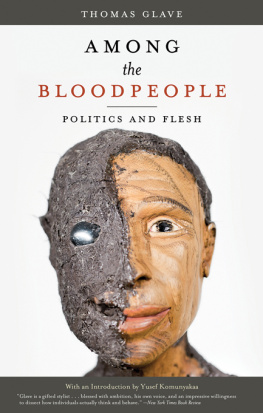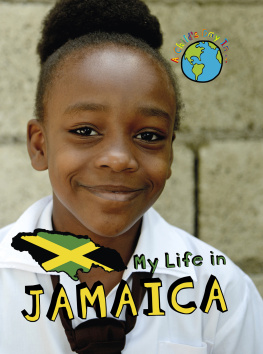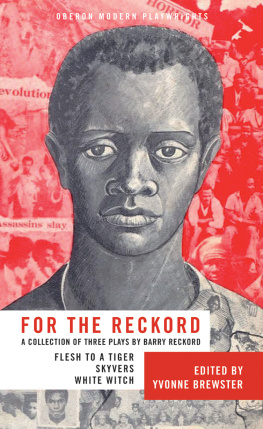CRITICAL PRAISE FOR THOMAS GLAVE
for Whose Song? and Other Stories
These stories are never about anything but the most serious matters of existencethe mysteries of violence and desire; the plain old hurting sorrow of why human beings have such trouble loving one another Glave is a gifted stylist blessed with ambition, his own voice, and an impressive willingness to dissect how individuals actually think and behave.
New York Times Book Review
Glaves literary temperament has been described as Faulknerian, and the comparison speaks volumes. Like Faulkner, Glave can make heavy demands on a reader He achieves astonishing tonal effects [and] has a poets way with words. words.
Washington Post
Thomas Glave likes to plunge us right into the middle of his storiesa crowd, a conversation, a consciousnessand smack in the center of a milieuAmerican or Caribbean, urban or rural, usually black, often queer. The prose in this first collection is dense, dreamy as rich as a novel and a book of poems combined.
Out Magazine
This book is a gem.
Lambda Book Report
Glave, like so many before him at City Lights, probes the soft underbelly of loves body, ennobles it, and gives it light, all the more to make us weep when it is violently slit open The rape in the title story, and all the other transgressions, propose that the sensual song of humanity belongs to those who sing it and condemns as evil those who would silence it. Thomas Glave sings most eloquently, poignantly, and heroically, and those who should hear his song are everywhere.
Bloomsbury Review
Each of the stories reveals a sensitive storyteller with the skill and fearlessness to pursue chilling, vivid scenarios, sensually charged with racial and sexual difference and the unceasing threat of their punishment, to the peak of horror Glaves compassion, insight, and writerly craft stamp every page of Whose Song?
San Francisco Bay Guardian
[Glave is] an extraordinary stylist, whose rare insight, boundless courage, and fierce imagination make these stories resound long after you turn the last page [His] intense prose recalls the rhythmic narrative thrust of early Toni Morrison.
Village Voice
Thomas Glave has the strong talent and courage to take up the right to enter the inner selves of both black and white characters in his stories. This is a creative claim beyond authenticity determined by skin color. He also has that essential writers ear for the way different people speak within their cultures, and what their idiom gives away of their inhibitions and affirmations.
Nadine Gordimer, author of No Time Like the Present
In this collection of short stories, Thomas Glave walks the path of such greats in American literature as Richard Wright and James Baldwin while forging new ground of his own. His voice is strong and his technique dazzling as he cuts to the bone of what it means to be black in America, white in America, gay in America, and human in the world at large. These stories span the globe of the human experience and the human heart. They are brutal in some places, tender in others, but always honestly told. A true talent of the twenty-first century.
Gloria Naylor, author of The Women of Brewster Place
This collection of short stories is heartstopping, reminiscent of Richard Wrights Eight Men. The title story Whose Song? will bring tears to your eyes. It may be as important to this centurys body of literature as Kafkas The Metamorphosis was to the last.
Harry Belafonte
for The Torturers Wife
Thomas Glave, who has been compared to fellow O. Henry Award winner Richard Wright, returns with his second collection of short fiction, The Torturers Wife. In passionate, disquieting prose, Glave bears eloquent witness to human traumas both large and small.
Bookforum
Interruptions, run-on sentences, and unorthodox punctuation waltz with graphic, grisly descriptions and sudden bouts of poetry. Teeming with unnamed characters and secrets galore, Glaves collection impressively and collectively presents itself as a trembling sheath barely concealing the horror and dubious complexities of modern-day life as we know it theres enough human trauma and socially weighty material here to keep the serious fictionreader wide-eyed and at full attention.
Bay Area Reporter
Glaves daringly experimental but eloquent prose style, often elliptical and interspersed with lines of poetry, is a challenge. But a deep, attentive reading will yield exciting literary rewards.
Seattle Gay News
Glaves second collection is a disquieting, graphic, semiexperimental compendium examining violence and ignorance in and out of wartime Glaves style, full of interruptions, ellipses, unconventional text treatments, and poemlike breaks, sends each story whirling thickly toward its end.
Publishers Weekly
All rights reserved. No part of this book may be used or reproduced in any manner whatsoever without the written permission of the publisher.
Published by Akashic Books
2013 by Thomas Glave
ISBN-13: 978-1-61775-170-7
eISBN: 9781617751783
Library of Congress Control Number: 2012954510
First printing
Front cover image: Jesus. Es geht um die Wurst, sculpture by
Jimmie Durham. Photograph of sculpture by Jochen Verghote.
Image reproduced with the permission of Jimmie Durham and
Het Museum van Hedendaagse Kunst Antwerpen (M HKA).
Akashic Books
PO Box 1456
New York, NY 10009
info@akashicbooks.com
www.akashicbooks.com
ALSO BY THOMAS GLAVE
Whose Song? and Other Stories
Words to Our Now: Imagination and Dissent
The Torturers Wife
Our Caribbean: A Gathering of Lesbian and Gay Writing
from the Antilles (Editor)
This book is dedicated with much more than thanks
to Norman Riley,
the greatest brother yet,
and the brothermost
friend
TABLE OF CONTENTS
FROM ENGLAND: DISSENT, JOY,
AND THE PAST THAT IS NEVER PAST
THE BLOOD WORK OF LANGUAGE
BY YUSEF KOMUNYAKAA
There are few voices as urgent as Thomas Glaves. In Among the Bloodpeople, he neither hesitates nor attempts to prepare us for the unsayable that which divorces some men and women from their Jamaican families. No sooner than a quick leap, we are wound in the bloody, necessary realities of Politics and Flesh. We learn the cold, hard, naked facts up front, and Glaves profound dialectical relationship to these subjects. He writes:
Speak with them [the locals] about the more than 1,500 people murdered in Jamaica in a recent year, one of these years in the early millenniummany of the victims eviscerated by machetes and otherwise butcheredbut have the courtesy and common sense not to mention that at least one of those people so brutally killed was both a beloved friend of yours and a political comrade in the fierce struggle those people (your people) constantly have to wage for their survival on the island.
A graphic horror opens under the sky of a place once defined as a paradise, and through the passion of language and acute imagery we feel anger and rage. But Glaves voice resonates in the plucked string holding each sentence together, an echo of James Baldwin and Jean Genet; his language carries the full freight of witness. Where Baldwin writes of being condemned to speak, Glave seems to race forward to accept the mantle of all the lusty details of human love and existencearms spread widenimble as some guardian angel of reprobation. He writes out of need, every trembling detail unmasked. Little escapes the hawks eye driven by a prophetic heart in the deep mix of essential renderings. Glave is a seer in the old-fashioned sense and dimension: each essay here is a body-and-soul affair. His language is seductive and regenerative, critical and humanizing, almost mathematically gauged and encompassing, and it never fails to hold us accountable. But alongside the terror we witness, moments of sheer beauty seethe out of the landscapenot as a balm, but as needful epistles of reflection.













